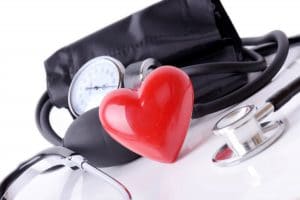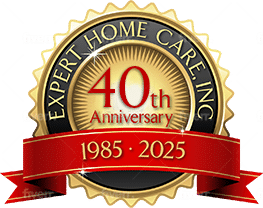The most common sign of heart attack in men is typically numbness in an arm and severe chest pain. But women don’t always experience those same symptoms, which can make it more difficult to recognize a heart attack while it’s in progress. These are just a few of the bigger symptoms you and your elderly family member and her elderly care provider should be aware of, especially if she has multiple risk factors for heart attack.
Pressure or Pain in the Upper Body

While pain in the chest is a traditional symptom of heart attack, many women experience pain in other areas. Pain in the upper arm, neck, shoulders, or even jaw can be an indication of a heart attack in women. Your senior might not feel what she describes as pain, either. She may experience pressure that doesn’t let up or that comes and goes.
Nausea or Heartburn
Feeling nauseated or experiencing heartburn can also be a sign of heart attack in women. Your senior might also find herself breaking out in a cold sweat, which can be disturbing for her. It’s really easy to chalk these symptoms up to “just heartburn” or even to anxiety or other health issues. Ignoring these signs can be extremely dangerous, so encourage your senior to see her doctor before downing a bunch of antacids.
Lightheadedness or Shortness of Breath
Your senior might feel short of breath or have a hard time catching her breath, even if her chest doesn’t hurt. This or lightheadedness can also be signs that she is having a heart attack. If there’s no reason for her to be experiencing these symptoms, like known lung issues or low blood sugar, then there may be something more severe happening.
Serious Exhaustion
If your elderly family member is feeling exhausted constantly, even after resting, she may be having heart trouble. Even the simplest tasks that she handles on a regular basis may be too much for her during this time. Having trouble sleeping may be an indication that more is happening, too.
Getting Help from Elderly Care Providers
Hiring elderly care providers to take care of some tasks for her can help her to rest easier, which might help you to see whether rest does help her or not. Ultimately, it’s crucial that you know your senior’s risk for having a heart attack. Talk to her doctor about her risks and ensure that you contact her doctor right away if she’s experiencing any of these symptoms.
If you or an aging loved-one is considering Elderly Care Services in Bridgewater NJ please contact the caring staff at Expert Home Care today at (732) 937-5320.
We have been providing Home Health Care to New Jersey families since 1985, and have grown to become one of the largest licensed providers of Live-In Home Care in the upper New Jersey area. Our many years of New Jersey home care experience has produced a company that over 8,000 clients have come to rely on confidently, for help.
- Risk Factors for Loneliness - April 22, 2025
- Common Challenges Seniors Face in Cars - April 7, 2025
- How Volunteering Can Help Your Senior Parent Find Purpose - March 24, 2025

